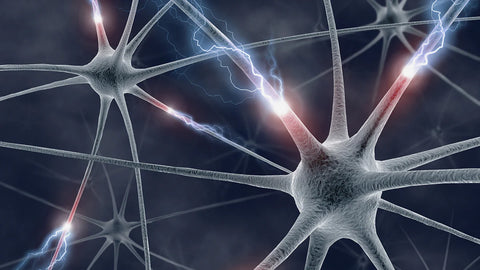Does CBD Make You Feel High?
Introduction
CBD, short for cannabidiol, is a compound found in cannabis plants. Despite its increasing popularity, many CBD misconceptions persist about its effects, CBD legality, and whether it can make you high. This article aims to clarify these misunderstandings and provide a comprehensive overview of CBD.
What is psychoactive?
Definition and Examples
Psychoactive substances affect the mind, altering brain function to change perception, mood, consciousness, cognition, or behavior. Examples include caffeine, nicotine, and certain medications used for anesthesia or to treat psychiatric conditions.

Is CBD Psychoactive?
Clarifying the Confusion
No, CBD is not psychoactive. It does not alter your mental state or make you feel high. The confusion often arises due to its association with cannabis, specifically the psychoactive compound THC (tetrahydrocannabinol).

The Endocannabinoid System
Understanding CBD’s Interaction with the BodyThe endocannabinoid system (ECS) consists of receptors and molecules throughout the body that regulate various physiological processes. CBD interacts with this system without binding to cannabinoid receptors in a way that would cause a high, unlike THC.
CBD vs THC
Differences and Effects
THC binds directly with cannabinoid receptors CB1 and CB2, producing psychoactive effects. CBD, on the other hand, does not bind in this manner and even mitigates some of THC’s effects, making it non-psychoactive.

The Legality of CBD
Legal Status and Regulations
CBD's legality has evolved over time. It was classified under the 2018 Farm Bill, removing it from the list of controlled substances as long as it contains less than 0.3% THC. This reclassification has made CBD legal at the federal level, although state regulations may vary.
CBD and Employer Drug Testing
Will CBD Show Up on a Drug Test?
Drug tests typically screen for THC, not CBD. Full-spectrum CBD products contain trace amounts of THC (below 0.3%), which are unlikely to cause a positive drug test. Broad-spectrum and isolate CBD products contain no THC, ensuring a negative test result.
Common Misconceptions About CBD
Dispelling the Myths
-
CBD is Psychoactive
As clarified, CBD is non-psychoactive and will not make you high. -
CBD is Illegal
CBD is legal under federal law, provided it contains less than 0.3% THC. -
CBD Will Make You Fail a Drug Test
Pure CBD products will not result in a positive drug test for THC.
Benefits of CBD
Why Use CBD?
CBD offers numerous potential health benefits, including reducing anxiety, pain relief, and improving sleep. Its non-psychoactive nature makes it an appealing option for those seeking therapeutic CBD effects without the high.
FAQs
Does CBD make you high?
No, CBD does not make you high as it is not psychoactive.
Is CBD legal?
Yes, CBD is legal at the federal level in the United States as long as it contains less than 0.3% THC.
Will CBD show up on a drug test?
CBD itself will not show up on a drug test. However, full-spectrum products with trace THC might, although it's unlikely.
What is the difference between CBD and THC?
CBD is non-psychoactive and does not make you high, while THC is psychoactive and does.
How does CBD interact with the body?
CBD interacts with the endocannabinoid system, influencing various physiological processes without producing a high.
Can CBD help with anxiety?
Many users report that CBD helps reduce anxiety, though more research is needed to confirm its efficacy.
Conclusion
Understanding the truth about CBD is crucial for dispelling myths and recognizing its potential benefits. CBD is non-psychoactive, legal, and will not make you fail a drug test. By separating fact from fiction, we can better appreciate how CBD can be an effective part of a wellness routine.
